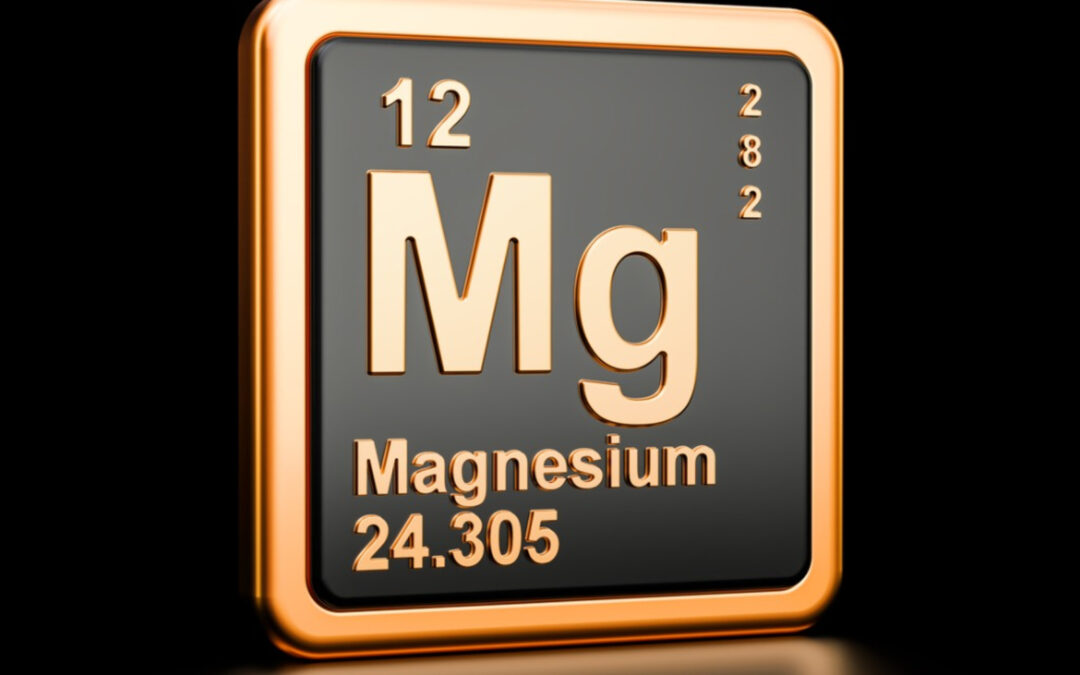Magnesium is a crucial mineral that plays a multifaceted role in maintaining overall health and wellness. Often overlooked despite its significance, magnesium is involved in numerous physiological processes, including muscle function, nerve transmission, and bone health. This article explores the importance of magnesium, its health benefits, sources, and considerations for ensuring adequate intake.
What Is Magnesium?
Magnesium is an essential mineral found in various foods and is vital for the proper functioning of the body. It is the fourth most abundant mineral in the body and is involved in over 300 enzymatic reactions. Magnesium plays a role in energy production, protein synthesis, and the regulation of numerous physiological processes.
Health Benefits of Magnesium
- Bone Health: Magnesium is integral to maintaining healthy bones. It works synergistically with calcium and vitamin D to support bone formation and density. Magnesium helps regulate calcium levels in the body, which is crucial for bone strength and the prevention of conditions like osteoporosis. Studies have shown that adequate magnesium intake is associated with better bone mineral density and a lower risk of fractures.
- Muscle Function: Magnesium is essential for proper muscle function. It helps regulate muscle contraction and relaxation by influencing calcium levels in muscle cells. Adequate magnesium levels can help prevent muscle cramps, spasms, and fatigue. It is especially beneficial for athletes and individuals who engage in intense physical activity, as magnesium supports muscle recovery and performance.
- Nerve Function: Magnesium plays a critical role in nerve function and neurotransmission. It helps regulate the transmission of nerve impulses and supports the proper functioning of the nervous system. Magnesium deficiency can lead to symptoms such as numbness, tingling, and irritability, as well as an increased risk of neurological disorders.
- Cardiovascular Health: Magnesium is crucial for maintaining cardiovascular health. It helps regulate heart rhythm, blood pressure, and blood vessel function. Adequate magnesium intake has been associated with a lower risk of cardiovascular diseases, including hypertension, heart disease, and stroke. Magnesium’s role in maintaining electrolyte balance and supporting vascular function contributes to its cardiovascular benefits.
- Blood Sugar Regulation: Magnesium is involved in glucose metabolism and insulin sensitivity. Research suggests that magnesium can improve insulin sensitivity and help regulate blood sugar levels. Adequate magnesium intake may reduce the risk of developing type 2 diabetes and support better management of the condition in individuals who already have it.
- Digestive Health: Magnesium aids in maintaining digestive health by supporting normal bowel function. It helps regulate muscle contractions in the digestive tract and promotes regular bowel movements. Magnesium supplementation can be beneficial for individuals experiencing constipation or other digestive issues.
- Mental Health and Sleep: Magnesium has been linked to mental health and sleep quality. It plays a role in regulating neurotransmitters and promoting relaxation, which can help alleviate symptoms of anxiety and depression. Magnesium’s calming effects on the nervous system may also improve sleep quality and help manage insomnia.
Sources of Magnesium
Magnesium is found in a variety of foods, and incorporating these into your diet can help meet your daily requirements. Key dietary sources include:
– Leafy Green Vegetables: Spinach, kale, and Swiss chard are rich in magnesium and provide other essential nutrients.
– Nuts and Seeds: Almonds, cashews, pumpkin seeds, and sunflower seeds are excellent sources of magnesium.
– Whole Grains: Brown rice, quinoa, and whole wheat products contain significant amounts of magnesium.
– Legumes: Beans, lentils, and chickpeas provide magnesium and are also high in protein and fiber.
– Fish: Fatty fish such as salmon and mackerel offer magnesium along with omega-3 fatty acids.
– Fruits: Bananas and avocados are good sources of magnesium, as well as vitamins and minerals.
– Dark Chocolate: High-quality dark chocolate with a high cocoa content contains magnesium and other beneficial compounds.
Magnesium Deficiency
Magnesium deficiency is relatively common and can arise from various factors, including poor dietary intake, gastrointestinal issues, and certain medical conditions. Symptoms of magnesium deficiency may include muscle cramps, fatigue, irritability, irregular heartbeat, and weakness. Chronic deficiency can lead to more serious health issues, such as osteoporosis, cardiovascular disease, and diabetes.
To prevent deficiency, it is essential to consume a balanced diet rich in magnesium-containing foods. In some cases, magnesium supplements may be recommended, especially if dietary intake is insufficient or if there are specific health conditions affecting magnesium absorption.
Supplementation and Dosage
Magnesium supplements are available in various forms, including magnesium citrate, magnesium oxide, and magnesium glycinate. The choice of supplement may depend on individual needs and tolerance. Common supplemental doses range from 200 to 400 milligrams per day, but it is important to follow the dosage recommendations provided on the product label or by a healthcare provider.
Excessive magnesium intake from supplements can lead to adverse effects, such as diarrhea, nausea, and abdominal cramping. It is generally safer to obtain magnesium from dietary sources, as the body regulates magnesium absorption more effectively from food than from supplements. Consulting with a healthcare provider before starting any new supplement regimen is advisable, particularly for individuals with underlying health conditions or those taking medications.
Conclusion
Magnesium is a vital mineral with a wide range of health benefits. Its role in bone health, muscle function, nerve transmission, cardiovascular health, blood sugar regulation, digestive health, and mental well-being underscores its importance in maintaining overall health. Ensuring adequate magnesium intake through a balanced diet and, if necessary, supplements can support optimal health and prevent deficiency-related issues.
As with any nutrient, balance is key. Maintaining adequate magnesium levels through dietary sources and appropriate supplementation, while consulting with healthcare professionals when needed, can help ensure that you reap the full benefits of this essential mineral. Embracing a magnesium-rich diet and staying informed about your nutritional needs can contribute to better health and well-being.

